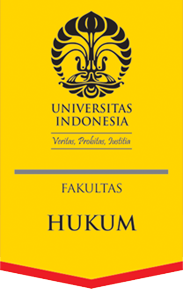Abstract
Many circles consider that Islamic family law in Indonesia must be renewed. But Islamic family law renewal is not an easy matter. The rejection of various parties to the Counter Legal Draft-Compilation of Islamic Law (CLD-KHI), as an effort to renew Islamic family law, become evidence of the difficulty of the renewal. Rejection of the CLD-KHI on the other hand also shows that Islamic family law reform must be carried out with approaches and methodologies derived from the tradition of Islamic thought itself. In this context, ijtihad based on maqashid syari'ah acts as a conceptual basis for the methodology of Islamic family law reform. This article aims to examine how the formulation and methodological contribution of maqashid syari'ah-based ijtihad in the development of Islamic family law. This study is normative juridical with a statute approach and analytical approach. The analysis is carried out with a qualitative descriptive method to describe the methodological contributions of ijtihad based on maqashid shari'ah in the formulation and development of Islamic family law.
Bahasa Abstract
Banyak kalangan menilai bahwa hukum keluarga Islam di Indonesia harus segera diperbarui. Namun, pembaruan hukum keluarga Islam tersebut bukanlah hal mudah. Penolakan berbagai pihak terhadap Counter Legal Draft-Kompilasi Hukum Islam (CLD-KHI), sebagai salah satu upaya pembaruan hukum keluarga Islam, bisa menjadi menjadi bukti sulitnya pembaruan tersebut. Penolakan terhadap CLD-KHI di sisi lain juga menunjukkan bahwa pembaruan hukum keluarga Islam harus dilakukan dengan pendekatan dan metodologi yang berasal dari tradisi pemikiran Islam sendiri. Dalam konteks inilah ijtihad berbasis maqashid syari’ah berperan sebagai dasar konseptual- metodologis pembaruan hukum keluarga Islam tersebut. Artikel ini bertujuan untuk mengkaji bagaimana formulasi dan kontribusi metodologis ijtihad berbasis maqashid syari’ah dalam pembangunan hukum keluarga Islam. Kajian ini bersifat yuridis normatif dengan pendekatan perundangan (statute approach) dan pendekatan analisis (analytical approach). Analisis dilakukan dengan metode deskriptif kualitatif untuk mendeskripsikan kontribusi metodologis ijtihad berbasis maqashid syari’ah dalam formulasi dan pembangunan hukum keluarga Islam.
References
Buku
Al ’Alwani, Taha Jabir. Issues in Comtemporary Islamic Thought. United States: The International Institute of Islamic Thought, 2005.
Anderson, J.N.D. Law Reform in the Modern World. London: The Anthone Press, 1967.
Auda, Jasser. Al-Maqasid untuk Pemula. Diterjemahkan oleh Ali abdelmon’im. Yogyakarta: SUKA Press, 2013.
———. Maqasid Al-Shariah as Philosophy of Islamic Law: A Systems Approach. London: The International Inst. of Islamic Thought, 2008.
Dawoud, El Alami, dan Hinchcliffe Doreen. Islamic Marriage and Divorce Laws of the Arab World. London: the Hague, 1996.
Husein, Muhammad. Perempuan, Islam & Negara: Pergulatan Identitas dan Entitas. Yogyakarta: Qalam Nusantara, 2016.
Imam Mawardi, Ahmad. Fiqh Minoritas; Fiqh al-aqalliyat dan Evolusi Maqashid Al- Syari’ah dari konsep ke Pendekatan. 1 ed. Yogyakarta: LKiS, 2010.
Kholish, Moh. Anas, dan Nor Salam. Epistemologi Hukum Islam Transformatif. Malang: UIN Press, 2016.
Mahmood, Tahir. Family Law Reform in the Muslim World. Bombay: N.M. Tripathi, 1972.
Mulia, Siti Musdah. “Menuju Hukum Perkawinan yang Adil: Memberdayakan Perempuan.” Dalam Perempuan dan Hukum. Jakarta: Yayasan Obor, 2006.
Nurlaelawati, Euis. Modernization, Tradition and Identity: The Kompilasi Hukum Islam and Legal Practice in the Indonesian Religious Courts. ICAS Publications Series 4. Amsterdam: Amsterdam University Press, 2010.
Rofiq, Ahmad. Pembaharuan hukum Islam di Indonesia. Yogyakarta: Gama Media, 2001.
Saeed, Abdullah. Islamic Thought: An Introduction. London: New York: Routledge, Taylor & Francis Group, 2006.
Soekanto, Soerjono, dan Sri Mamudji. Penelitian Hukum Normatif: Suatu Tinjauan Singkat. Jakarta: Raja Grafindo Persada, 2001.
Tim Pengarustamaan Gender Departemen Agama RI. Pembaruan Hukum Islam: Counter Legal Draft Kompilasi Hukum Islam. Jakarta, 2004.
Wahid, Marzuki. Fiqh Indonesia: Kompilasi Hukum Islam dan Counter Legal Draft Kompilasi Hukum Islam dalam Bingkai Politik Hukum Indonesia. Institut Studi Islam Fahmina, 2014.
Jurnal
Haneef, Sayed Sikandar Shah, Saidatolakma bt Mohd Yunus, dan Mohammed Farid Ali Al-Fijawi. “Muslim Feminists Reading of the Quran: A Juristic Analysis on Family Law Issues”, Mazahib, Vo. 17, No. 1, 2018, 1-22: 19.
Kamali, Mohammad Hashim. “Maqasid Al-Shari’ah and Ijtihad as Instruments of Civilisational Renewal: A Methodological Perspective”, Islam and Civilisational Renewal (ICR) 2, No. 2, 2011, 245-271: 246 dan 251.
Kholis, Nur, Jumaiyah Jumaiyah, dan Wahidullah Wahidullah. “Poligami Dan Ketidakadilan Gender Dalam Undang-Undang Perkawinan di Indonesia”, Al- Ahkam 27, No. 2, 2017, 195-212: 195.
Maula, Bani Syarif. “Kajian Al-Ahwal Al-Syakhsiyyah dengan Pendekatan Maqasid Al-Syari’ah”, Al-Manahij: Jurnal Kajian Hukum Islam 8, No. 2, 2014, 233–246; 233.
Sadari, Dr. “Who Speaks for Islamic Family Law? Debates on Islamic Law Compilation (KHI) in Indonesia”, Journal of Islamic Studies and Culture 6, No. 1, 2018. 11-30: 20.
Recommended Citation
Tohari, Ilham and Kholish, Moh. Anas
(2023)
"IJTIHAD BERBASIS MAQASHID SYARI’AH SEBAGAI PIJAKAN KONSEPTUAL DALAM PEMBARUAN HUKUM KELUARGA ISLAM INDONESIA,"
Jurnal Hukum & Pembangunan: Vol. 50:
No.
2, Article 11.
Available at:
https://scholarhub.ui.ac.id/jhp/vol50/iss2/11
Included in
Administrative Law Commons, Comparative and Foreign Law Commons, Constitutional Law Commons, Criminal Law Commons, Natural Resources Law Commons

